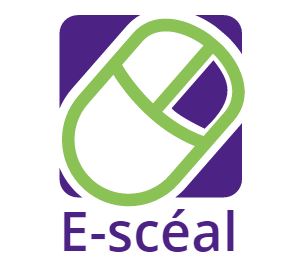IPPN Statement re. Section 37a
- Published: 29 June 2022
 As the professional body for primary school leaders, IPPN recognises the current pressure within the system in terms of a shortage of places for children with complex additional needs in special classes and in special schools in Dublin.
As the professional body for primary school leaders, IPPN recognises the current pressure within the system in terms of a shortage of places for children with complex additional needs in special classes and in special schools in Dublin.
IPPN fully supports the principle of ensuring equal access to quality inclusive education for all learners. This inclusion must be planned, supported and resourced. The current shortage of places in special classes and in special schools highlights the inadequacy of such planning.
It is IPPN’s view that the decision to publish the names of four schools that had been identified as not having engaged sufficiently with regard to the possibility of opening special classes, a determination that is at odds with the facts presented by the schools, was ill-informed, ill-advised and ill-judged.
It signalled a clear departure from the consultative and collaborative approach that has underpinned the interactions between the Department, its agencies, the education partners and schools in recent years. The lack of proper and timely planning, consultation and due diligence to ascertain what actual capacity exists within the schools to facilitate the opening of special classes, and the extent to which such capacity is suitable to meet the varied needs of a special class, is a failure on the part of the Department and its agencies. The attempt to make these schools accountable for this failure is unwarranted and unjust.
Under Section 37A of the Education Act 1998 (as inserted by Section 8 of the Education (Admission to Schools) Act 2018), the Minister has the power to direct schools to make additional special education provision available and ensure sufficient places are provided. Such powers should be exercised in a timely, judicious and fair manner. However, it must be recognised that a requirement to exercise those powers means that the system has already failed to adequately prepare for the placement of children with complex additional needs. The amendments to the legislation, passed by the Cabinet yesterday, only seek to resolve a current issue that is of the system’s own making. The amended legislation lacks the vision required to prevent a reoccurrence of this situation.
IPPN encourages all schools to undertake to open a special class if/when an application is received on behalf of a child within their catchment area who has a recommendation for placement in a special class. The reduced timeframe for the Admissions process required under legislation does not afford sufficient time for the planning, support and resourcing to be undertaken that is required to facilitate the placement of children with complex additional needs in their local national school,. This was raised by IPPN as an issue at the time the legislation was enacted.
It is IPPN’s belief that an amendment to the legislation to allow schools to receive applications on behalf of children who have a recommendation for placement in a special class or school, 24 months in advance of their school start date, would alleviate this difficulty. The extended period that would be afforded by an earlier application would allow the school, in consultation with the SENO, to address what needs to be put in place to ensure the child’s access to quality inclusive education. In short, it would provide the parents of children with complex additional needs with certainty about school placement, would obviate the necessity to invoke Section 37A and, most importantly, would ensure that children with complex additional needs will be able to attend the same local national school as their brother or sister.
IPPN is committed to working with the Minister, her officials and the other education partners, to bring about the reform that is required to make access to quality inclusive education available to all children in a timely manner. However, we strongly urge that the policy decision to publish the names of schools in an attempt to “spotlight” them be discontinued, as a matter of urgency. Acting outside of the established legal process to deal with these issues undermines that legislation and the Department’s commitment to fair procedures. The children, their parents and our school leaders deserve better and we have communicated these views directly to the minister.
29th June 2022






















































